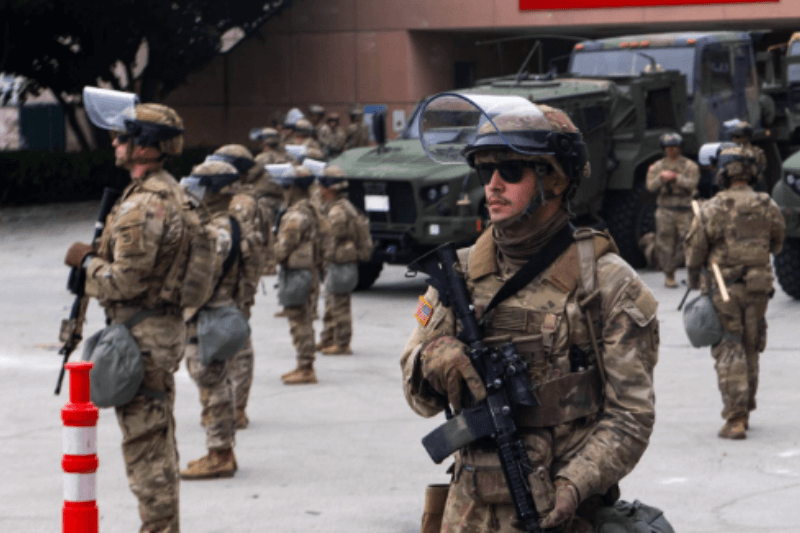
(C) KQED
President Donald Trump has approved the dispatch of an additional 2,000 National Guard members and 700 Marines to Los Angeles, U.S. officials said Monday, significantly ramping up the federal response to protests against immigration enforcement actions in the city.
The deployment occurs amid rising tensions with federal and California state officials, as local officials including California Governor Gavin Newsom and Los Angeles Mayor Karen Bass denounce the deployment. Newsom called the deployment ‘reckless’ and ‘disrespectful to our troops’ while Bass called it a ‘deliberate attempt’ to sow chaos.
Monday’s announcement follows a first surge of 2,000 Guard troops activated over the weekend, when Los Angeles faced its most violent protests since Friday’s demonstrations began. Following the arrest of over 40 immigrants in workplace raids, Los Angeles has seen protests with thousands of protesters on the streets each day. Some protests grew violent, as self driving cars were set on fire and police deployed tear gas and rubber bullets.
For a less combative tone on Monday, with peaceful rallies on City Hall’s steps and outside a federal detention center, the military increase has raised concern. “The Marines’ uncoordinated arrival had caused significant logistical and operational challenges,” said Los Angeles Police Chief Jim McDonnell.
According to the Pentagon, the Marines were deployed to protect federal facilities and personnel (including ICE agents). Reportedly, a memo is in progress to inform the Marines what they can do during protests, including the detention of civilians on a temporary basis if needed.
California Attorney General Rob Bonta filed a federal lawsuit against Trump’s ability to deploy state National Guard troops without approval, calling it an attack on California’s sovereignty.
“This isn’t about public safety,” said Newsom. “It’s about stroking the ego of a dangerous President.”
With over 4,100 National Guard members now under federal orders, California leaders remain defiant by asserting their right to control the utilization of military force within their state borders.







